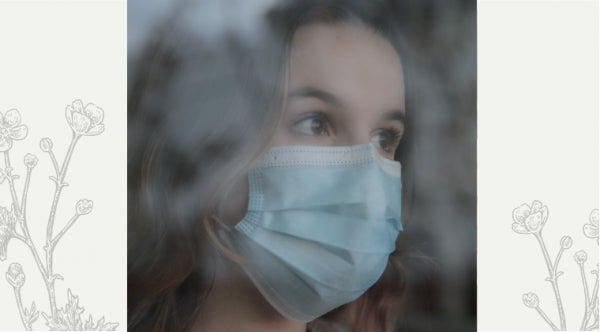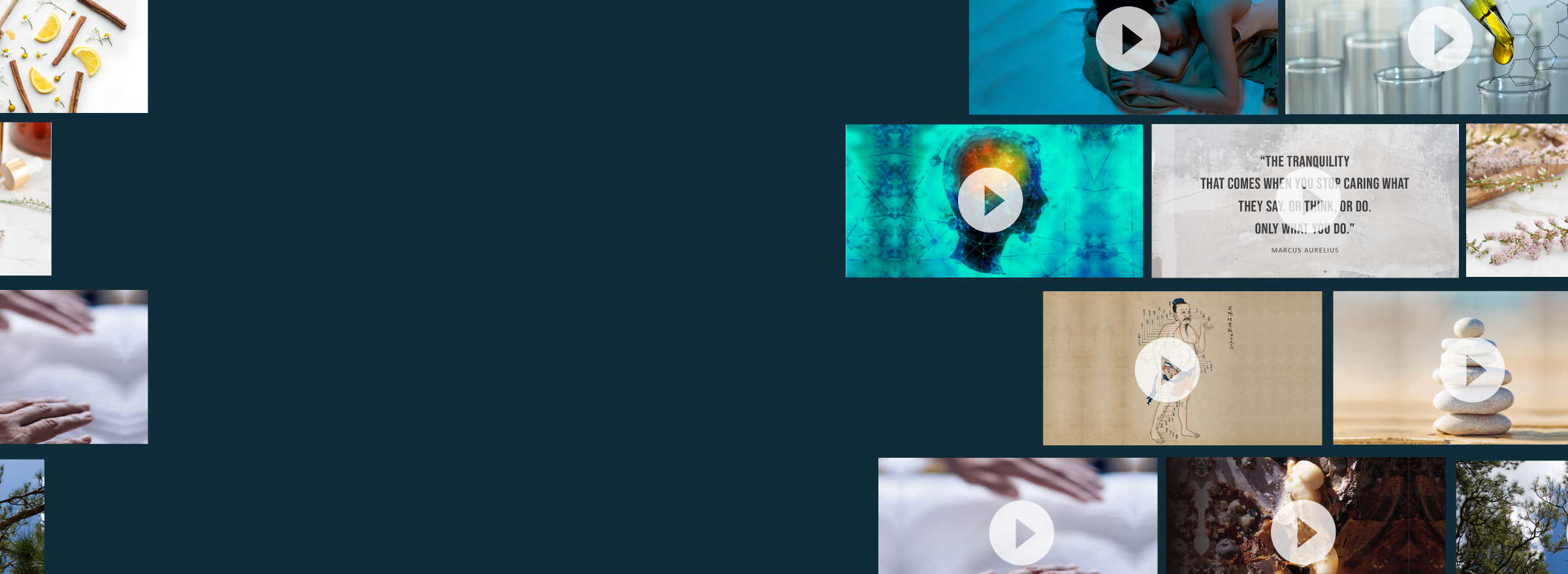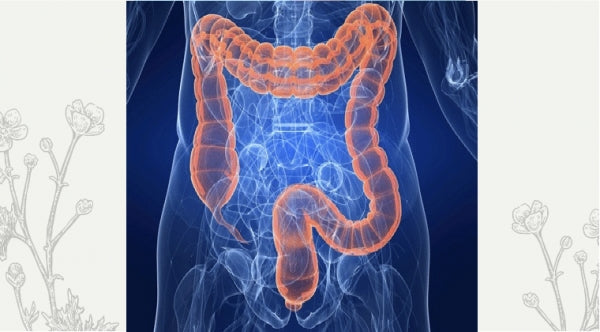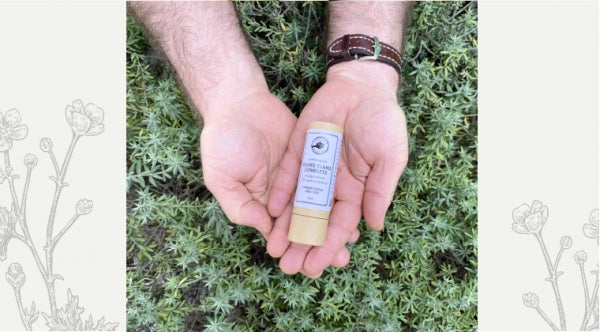In preparing for my next masterclass, Aromatherapy and Mental Health, I began researching the impact of the pandemic on mental health. The impact of the COVID-19 pandemic on mental health has been extensively reported and the statistics thus far are very concerning.
The long-term lockdowns, fear of getting infected, travel restrictions, financial consequences of lockdowns and travel restrictions, loss of employment or disruption to business, work pressure on frontline health care workers - to name a few factors - are all contributing to anxiety and mental health problems of many people.
There is no doubt that the actions of government will be challenged and questioned for years to come. For example, Foster, Frijiters and Baker’s book The Great Covid Pandemic: What Happened, Why, and What to do Next questions the strategies that governments around the world have taken and continue to take to manage the pandemic. Their book explores the effects of government policies to curb the spread of COVID-19 infections by restricting the movement of people, disruption to the education of children, disruption to businesses and employment and the suspension of normal individual liberties.1
Steven Taylor, author of The Psychology of Pandemics – preparing for the next global outbreak of infectious disease, comprehensively explores the effect that pandemics have on our mental health and suggests that many of the decisions made such as restricting movement of people, mandating mask wearing and social distancing and vaccinations are necessary to successfully manage a pandemic; however, he states it is imperative to have an effective risk communication strategy in place to encourage adherence and to reduce conspiracy theories being perpetuated.2
Taylor states that risk communication should contain more than just tips about good hygiene and the need for vaccination. It should include information about coping methods, strategies for dealing with stigma, guidance on building resilience, and psycho-educational materials on grief, anxiety, depression, helplessness, apathy, frustration, anger, and volatility.2
Unfortunately, I don’t think many governments have done a great job in effective risk communication and I am not sure that promoting adherence by evoking fear is such a good idea. As Taylor states, this only creates problems of its own.2
Laura Dodsworth, author of a State of Fear: How the UK government weaponised fear during the COVID-19 pandemic is critical of how the government weaponised fear against us, supposedly in our best interests.3
A report published by Monash University discusses how severe lockdowns restrictions have taken a toll on mental health. The report states that compared to other states and territories with less restriction, the severe COVID-19 restrictions in Victoria were associated with significantly higher depressive and anxiety symptoms.4
It is not surprising that the article states many people in Australia are feeling dispirited and demoralised. Some are mourning losses of agency and autonomy, connections with family and friends, and participation in milestone events, an experience what is called disenfranchised grief.4
Another article by Monash University explores the significance of hope for shaping and motivating positive actions during the current pandemic. The article explains that the lockdowns have corresponded with an increase in the use of crisis help lines such as Lifeline and mental health services since 2019, and that there is an increase in social distress that is expressed as ‘loss of hope’ that has accompanied the economic and social disruption. Scholars have recognised the role of hope for surviving and motivating actions.5
Hope and feelings of hopelessness are often discussed in clinical care especially in the context of mental health. Hopelessness is an item assessed for depression in DSM-V.
Researchers have found that hope has strong positive associations with a variety of psychosocial processes and outcomes such as emotional adjustment, positive affect, life satisfaction, sense of purpose, quality of life, and social support. On the other hand, low levels of hope, or hopelessness have been associated with elevated risk of mental health problems such as anxiety, depression, and post-traumatic stress disorder.6
Hope is defined as an emotional process that strengthens individuals to be resilient and help them cope with disturbances. Studies have shown that hope and resilience have direct positive impact on psychological health and subjective wellbeing. Hope has been associated with better health outcomes, quality of life and daily functioning. Higher hope is associated with lower stress and depressive symptoms, better quality of life, positive cardiovascular outcomes, and improvement in the daily functioning.7
Resilience is considered one’s ability to ’bounce back’ or ‘recover’ from any disturbances, negative life events, resistance to illness and flexibility to adapt to new situations to maintain their psychological health. Resilience can buffer the negative impact of traumatic events on the development of post-traumatic stress disorder. Resilience has been positively linked with wellbeing and improved coping strategies. Hope and resilience are considered important factors underpinning positive mental health outcomes.7
I refer to the role of hope and resilience in Volume III in the chapter on Aromatherapy and Mental Health. In the section in which I discuss the impact of spirituality on mental health and I have identified hope and resilience as two important factors underpinning positive mental health outcomes.
This leads me to what I really wanted to discuss today, but I have now extended my welcome so I do look forward to sharing with you the wisdom of Julian of Norwich as told by Matthew Fox in another blog.
Matthew Fox, the author of Julian of Norwich: Wisdom in a time of Pandemic – and beyond, beautifully articulates the wisdom of Julian of Norwich who lived in the period of the bubonic plague in the fourteenth century. Julian of Norwich inspires hope, not fear, they are spiritually comforting and are just as relevant today, if not more relevant today as they were 700 years ago.8
You may recall in the first chapter of Volume III, Re-shamanising Aromatherapy, I refer to the inappropriate cultural appropriation of shamanic practices. I cite the work of David Tacey and Carl Jung who state that it is often easier to take on the spirituality and trappings of an exotic cosmology than face the poverty of our souls and begin a dialogue with the inner life.
Matthew Fox’s book on Julian of Norwich has introduced me to a very important piece of the puzzle that was missing for many Westerners who are looking for a more balanced, holistic and compassionate view of life and spirituality, which also provides hope and nurtures our resilience.
Until next week, please take care.
References
1. Frijiters P, Foster G, Baker M. The Great Covid Pandemic: What Happened, Why, and What to do Next. Brownstone Institute, 2021
2. Taylor S. The Psychology of Pandemics – preparing for the next global outbreak of infectious disease. Cambridge Scholars Publishing, Newcastle upon Tyne, 2019.
3. Dodsworth L. State of Fear: How the UK government weaponised fear during the covid-19 pandemic. Pinter & Martin, London, 2021.
4. https://lens.monash.edu/@coronavirus-articles/2021/08/06/1383599/how-severe-covid-restrictions-have-hit-population-mental-health
5. https://lens.monash.edu/@politics-society/2021/09/03/1383739/covid-19-the-significance-of-hope-for-shaping-and-motivating-positive-actions
6. Long KNG et al. The role of hope in subsequent health and well-being for older adults: an outcome-wide longitudinal approach. Global Epidemiology. 2020;2:100018. doi:10.1016/j.gloepi.2020.100018
7. Yildirim M et al. Exploring the associations between resilience, dispositional hope, preventive behaviours, subjective well-being, and psychological health among adults during early stage of covid-19. Current Psychology. Nov 2020. Doi:10.1007/s12144-020-01177-2
8. Fox M. Julian of Norwich: Wisdom in a time of Pandemic – and beyond. iUniverse, Bloomington, 2021.




